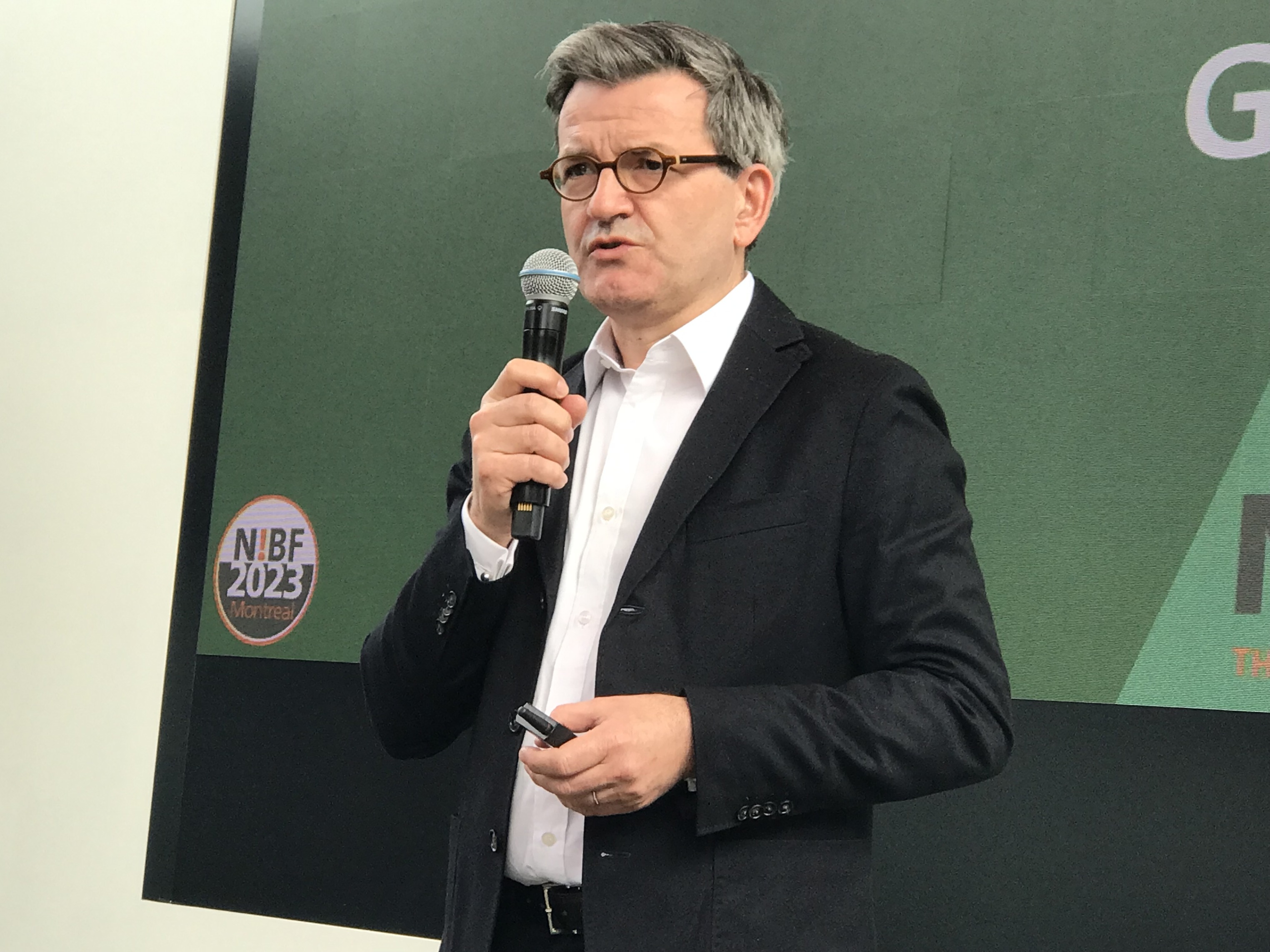Gaël Escribe, CEO of NEXUS Automotive International, issued a call for “urgency” from aftermarket leaders to address sustainability and environmental impacts, particularly around parts delivery.
Speaking at the organization’s N! Climate Day event in Montreal, Escribe said that while many aftermarket organizations have begun to institute Equity, Sustainability, and Governance (ESG) initiatives, more needs to be done to focus on moves on the environmental front.
“Think about your grandkids at the end of this century. Do you think that your grandkids will look at your professional victories as the main thing for you? Or will they look at what you have done for their planet, to be able to live normally on the planet where you have done relatively comfortably?” offered Escribe.
“So I would invite you to think about your grandkids and your [great-]grandkids in 2090. When they speak about their grandfather, what will they say? You know, if the grass is yellow, if there’s no water, if the summers are peaking at 50 degrees in Germany, et cetera, what will they say about their grandfather and so on? They won’t speak about profitable growth that you achieved. They won’t speak about the KPIs that you’re running after every day. They will speak certainly about what you have done, potentially, to make their life a decent life.”
His comments came at the end of a day of N! Climate Day presentations where organizations discussed their sustainability initiatives, their challenges, and how they see their organizations moving forward. Examples were presented at the supplier, distribution, and service provider levels to define actions to be taken for a more sustainable aftermarket industry,
NEXUS Climate Day was presented as part of the NEXUS Business Forum, which brought together distributors, suppliers, and aftermarket service organizations from around the world to Montreal for presentations and business meetings.
It was the first business forum for the organization held in North America.
NEXUS Automotive International describes itself as “the leading automotive aftermarket (AA) global community, shaping the future of the [automotive aftermarket],” with more than 150 members in 140 countries, allied with 78 global suppliers. In North America, distribution members include the Automotive Parts & Services Group, Advance Auto Parts, VIPAR Heavy Duty, Automotive Parts Associates, and Uni-Select Inc.
One item which was highlighted in the presentations was the impact that deliveries to garages have on the carbon footprint of distribution organizations and their customers. In the nomenclature of sustainability, even when the costs of these activities are not directly borne by an organization, they are still accounted for in their ESG scoring.
Scope 1 emissions are direct emissions from sources owned and controlled by a company, such as those from company-owned vehicles. Scope 2 emissions are indirect emissions that are not owned or controlled by a company, but are directly related to its operation, such as the emissions from electricity providers. Scope 3 emissions come from indirect providers, such as during the delivery of goods.
In the context of this last point, it was offered that the frequency of parts delivery to garages was an area of significant concern and, accordingly, of potential gains.
While most if not all wholesalers and distributors view their ability to serve ASP needs with multiple deliveries on demand as a key competitive issue – and as a service that ASPs take full advantage of – it is also an area that most will recognize as a significant and rising cost, which is increasingly recognized as an area of both environmental concern and a drag on the bottom line of distribution organizations.
One group of distributors in a region of Austria, attendees were told, had even agreed to limit deliveries to three times a day. Discussions to bring this approach to a wider market raised concerns over legality, breach of competition rules, and cartel accusations.
Later discussions with distributors in attendance from around the world echoed these concerns, as well as the competitive importance of rapid delivery.
Still, Escribe offered that it is nonetheless important to address this issue moving forward.
“So we ship [using] electrical vehicles to have a good appearance, but we keep shipping 10 times, 20 times [a day]. So this is an example where the sense of urgency has to be tackled. If the big guys decide all together to put pressure on the garage [to be more organized] . . . we will properly reduce tons and tons and tons of emissions.”



0 Comments